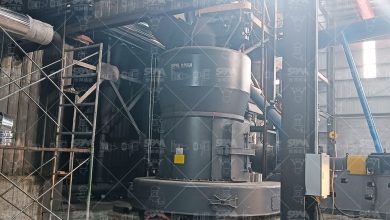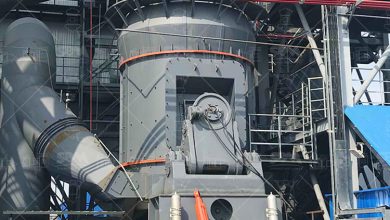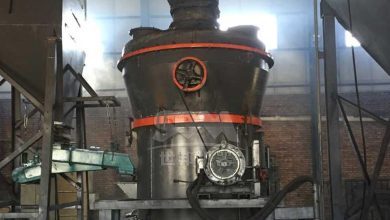What Grinding Mill is Used for Deep Processing of Desulfurized Gypsum?
Introduction to Desulfurized Gypsum Deep Processing
Desulfurized gypsum, also known as flue gas desulfurization (FGD) gypsum, is a byproduct generated from coal-fired power plants’ emission control systems. With increasing environmental regulations worldwide, the production of desulfurized gypsum has grown substantially, creating both challenges and opportunities for its utilization. Deep processing of this material transforms it into high-value products for construction, agriculture, and industrial applications, requiring specialized grinding equipment to achieve the necessary particle size distribution and quality parameters.
Technical Requirements for Desulfurized Gypsum Grinding
The deep processing of desulfurized gypsum demands specific technical considerations that influence mill selection. The material typically requires grinding to various fineness levels depending on the end-use application. For construction applications such as gypsum plaster and self-leveling compounds, fineness ranges between 200-400 mesh are common. For specialized applications in polymer composites or high-performance building materials, ultra-fine grinding to 800-2500 mesh may be necessary.
Key technical parameters for desulfurized gypsum processing include:
- Moisture content control (typically below 1% for optimal grinding)
- Particle size distribution with narrow range for consistent performance
- Maintenance of gypsum crystal structure to preserve setting properties
- Low iron contamination to ensure product whiteness
- Energy efficiency to maintain economic viability

Mill Selection Criteria for Desulfurized Gypsum
Selecting the appropriate grinding mill for desulfurized gypsum requires careful evaluation of multiple factors. The chosen equipment must balance production capacity, energy consumption, maintenance requirements, and final product quality. Key selection criteria include:
Production Capacity Requirements
The mill must match the production scale, ranging from small pilot plants (1-5 ton/h) to large industrial operations (20-50 ton/h). The equipment should offer scalability to accommodate future expansion.
Energy Efficiency Considerations
Grinding operations typically account for 60-70% of total energy consumption in gypsum processing plants. High-efficiency mills can reduce operational costs significantly while minimizing environmental impact.
Product Quality Specifications
The mill must consistently produce powder with the required particle size distribution, morphology, and chemical purity. Equipment with precise classification systems is essential for meeting stringent quality standards.
Recommended Grinding Mills for Desulfurized Gypsum Processing
SCM Ultrafine Mill for High-Value Applications
For applications requiring ultra-fine desulfurized gypsum powder (325-2500 mesh), the SCM Ultrafine Mill represents an optimal solution. This advanced grinding system delivers exceptional performance through its innovative design and precision engineering.
The SCM series offers several distinct advantages for desulfurized gypsum processing:
- High-Efficiency Grinding: With capacity twice that of jet mills and 30% lower energy consumption, the SCM Ultrafine Mill provides significant operational savings while maintaining superior product quality.
- Precision Classification: The integrated vertical turbine classifier ensures accurate particle size cuts with no coarse powder contamination, delivering consistent fineness from 325 to 2500 mesh (D97≤5μm).
- Robust Construction: Specially manufactured roller and grinding ring materials extend service life multiple times compared to conventional mills, while the bearingless screw grinding chamber ensures stable operation.
- Environmental Compliance: Pulse dust collection efficiency exceeds international standards, and the acoustic enclosure design maintains noise levels below 75dB.
The working principle involves a main motor driving multiple grinding rings in layers. Material is dispersed into the grinding path by centrifugal force, undergoes progressive compression grinding between rollers and rings, and is finally collected by the cyclone collector and pulse dust removal system.
With models ranging from SCM800 (0.5-4.5 ton/h) to SCM1680 (5.0-25 ton/h), the series offers scalable solutions for operations of all sizes, making it particularly suitable for high-value desulfurized gypsum products in specialty construction materials and industrial applications.

MTW Series Trapezium Mill for Standard Applications
For standard desulfurized gypsum products requiring fineness between 30-325 mesh, the MTW Series Trapezium Mill provides an excellent balance of performance, reliability, and operating economy. This European-style grinding mill incorporates multiple technological innovations specifically beneficial for gypsum processing.
Key features of the MTW Series include:
- Anti-Wear Shovel Design: Combined shovel blades reduce maintenance costs while curved design extends roller service life, critical for abrasive materials like gypsum.
- Optimized Air Channel: The curved air channel minimizes airflow energy loss with transmission efficiency improvements, while high-strength guard plates protect the air channel working surface.
- Integrated Bevel Gear Transmission: Achieving 98% transmission efficiency, this compact design saves space and reduces installation costs.
- Wear-Resistant Volute Structure: The obstruction-free design enhances air classification efficiency while reducing maintenance costs by 30%.
The operational principle involves the main motor driving grinding rollers to revolve around the central axis while rotating themselves to generate centrifugal force. Shovels throw material between the grinding ring and rollers to form a material layer, achieving efficient crushing through compression, with the classification system precisely controlling final particle size.
Available in models from MTW110 (3-9 ton/h) to MTW215G (15-45 ton/h), the MTW Series accommodates medium to large-scale desulfurized gypsum processing requirements, particularly suited for manufacturing gypsum board, plaster, and other construction products.
Comparative Analysis of Mill Performance
When selecting between ultrafine and standard grinding systems for desulfurized gypsum, several performance factors must be considered:
| Parameter | SCM Ultrafine Mill | MTW Trapezium Mill |
|---|---|---|
| Optimal Fineness Range | 325-2500 mesh | 30-325 mesh |
| Energy Consumption | 30-40 kWh/ton | 15-25 kWh/ton |
| Capital Investment | High | Medium |
| Operating Costs | Medium-High | Low-Medium |
| Product Value | High | Medium |
| Maintenance Frequency | Low | Very Low |
Application-Specific Recommendations
Construction Grade Gypsum Products
For standard construction applications including gypsum board, plaster, and joint compounds, the MTW Series Trapezium Mill provides the optimal balance of product quality and operational economics. The ability to produce powder in the 80-200 mesh range with excellent particle distribution makes it ideal for these applications.
High-Performance Specialty Products
For advanced applications such as polymer-gypsum composites, precision molds, and specialized building materials requiring ultra-fine powders, the SCM Ultrafine Mill delivers the necessary product characteristics with superior efficiency.

Operational Considerations and Best Practices
Successful implementation of grinding mills for desulfurized gypsum requires attention to several operational aspects:
Moisture Control
Maintaining consistent feed moisture below 5% is critical for optimal mill performance. Pre-drying systems may be necessary depending on raw material characteristics.
Feed Size Management
Consistent feed size below the mill’s maximum specification ensures stable operation and prevents capacity reduction. Preliminary crushing may be required for oversize material.
System Integration
Proper integration with feeding, collection, and packaging systems ensures smooth operation and product quality consistency. Automated control systems further enhance operational reliability.
Conclusion
The selection of appropriate grinding equipment is crucial for successful deep processing of desulfurized gypsum. Both the SCM Ultrafine Mill and MTW Series Trapezium Mill offer distinct advantages for different application requirements and production scales. The SCM series excels in high-value applications requiring ultra-fine powders, while the MTW series provides outstanding performance for standard construction products. By matching mill capabilities to specific product requirements and operational constraints, producers can optimize both product quality and economic returns from desulfurized gypsum processing operations.
As environmental regulations continue to drive increased production of desulfurized gypsum, advanced grinding technologies will play an increasingly important role in transforming this byproduct into valuable materials for diverse industrial applications. The continuous improvement in mill efficiency and product quality will further enhance the economic viability and environmental benefits of comprehensive desulfurized gypsum utilization.





